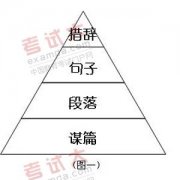the Ancient Olympics
With great anticipation, China is busily preparing for the 2008Summer Olympic Games. Beijing will be added to a long list of the great cities that have invited the world to honor the world’s greatest athletes in the modern ear of the Olympic Games. China will also become part of an important, rich heritage that goes back more than 2000 years.
The origins of the ancient Olympic Games tend to be submerged in sea of Greek myths. One popular myth suggests that Pelops, a prince from Lydia, in Asia Minor (nowadays Turkey), won the hand of a princess by unfairly defeating a competing suitor in a chariot race. The loser was to be condemned to beheading. The prince rigged his opponent’s chariot to crash during the race. Later, the chariot did crash, killing the driver. The princess became Pelop’s bride, and he instituted the Olympic Games to celebrate his victory. However, others claimed that the first Olympic event was a funeral festival to honor his dead competitor.
Another myth involved Hercules, the mythical strong man. Hercules was the son of Zeus, the Greek god, and one of the god’s mistresses. Hera, Zeus’ wife, and also his sister, was very upset. She attempted in many ways, to kill Hercules as a baby. Hercules survived. Later, after he had married, Hera successfully put a spell on him, demanding that he kill his wife. Because he was the son of the god, Zeus, Hercules was destined to become a god himself. In order to accomplish this, Hercules had to be cleansed of his wife’s murder. To do this, he was directed to perform twelve difficult labors. If he successfully completed these, he would become an immortal god, like his father.
One of the majestic labors was to clean the stables of the King of Elis, in the impossibly brief period of one day. The king had huge stables with very large herds of cattle. Hercules asked the king to give him one tenth of his cattle, if he completed the task in one day. The king, perhaps humoring Hercules, or perhaps believing that this task couldn’t possibly be done in one day, agreed. In one day, Hercules diverted two rivers through the barns, cleaning them, but he did not receive the cattle that were promised in the deal. Hercules waged a successful war on the King, sacking Elis. He introduced the Olympic Games to celebrate this victory and to honor his father, Zeus, who lived on nearby Mount Olympus. The myth also suggests that Hercules measured out the stade, a footrace event of about 200 meters (or the length of the stadium).
As today, athletes in the ancient world were popular and had tremendous impact on the society of their day. The goal of the well-disciplined, physically trim athletes was to be the best. The champion athlete assumed a position of honor and privilege in Greek society. The status of a triumphant athlete also enhanced the reputation of his home city-state. Every young Greek boy who pursued the dream of being an Olympic champion some day envied the athletes. An important part of a Greek school boy’s curriculum was vigorous physical training in gymnasium.
The ancient Olympic Games, which began in 776 BC, lasted for over 1100 years. In 394 AD, the Christian Roman Emperor Theodosius abolished the games, as pagan festivals. At that time the Roman Empire was in decline. The modern Olympics have been around for only a little over 100 years, sine 1896. The Olympics of 776BC was the first, for which there is a written record, but it is believed that these events existed before this. There is evidence to show that athletic contests took place in Ancient Egypt and in the ancient Minoan civilization on the island of Crete.
A plain called Olympia, in the small city-state of Elis was the site of the original Greek games. At the beginning of every four years, a period called an Olympiad, a major religious festival with athletic competition, took place at Olympia. In ancient Greece, the early Olympics did not rotate from city to city, but were permanently hosted at Olympia, the place from which the name Olympics originated. If wars were taking place at the time, as there usually were, a truce would be made during the military conflicts, soldiers would drop their swords and shields and accompany their opponents on a safe passage to Olympia, to enthusiastically participate in the games. After the games, the athletes would return to the battlefields with their companions, pick up their weapons and resume military engagements with their enemies, often fighting to the death, the athletic competitors whom they confronted only a few days or weeks before.
In the beginning, only free Greek-speaking male athletes could participate in the games, women, slaves, and foreigners were banned from competition. Women were even barred as spectators, not for sexual reasons, but for from 720 BC the male athletes were usually naked down to their bare feet when they participated. Olympia was a sacred place for men only, a place to worship Zeus, the principal Greek god. However, women were not completely excluded from competitive sports, as they had their own games, every four years as well, called the Heraea, after Hera, the wife of Zeus.
The first number of Olympic Games had only one event, called the stade. By the late 8th century BC, events included running, wrestling, boxing, pancratium (a mixture of boxing and wrestling), chariot racing, a footrace with heavy armor, and the pentathlon. The only official prize earned by the champion, was a crown of wild olive branches. Unofficially, some athletes received valuable prizes, including large sums of money from their home city-states. As in modern times, ancient athletes, even though they made pledges of fairness in competition, sought our every advantage, legal or illegal, in order to win. Even then, the concept of amateurism, for which there were no rules in ancient times, and the zeal for the competitive spirit were often sacrificed for the more selfish materialistic considerations.
By the 6th century BC, athletes began to specialize in particular sports, and even began to hire coaches. Special diets and new innovated kinds of physical conditioning became popular. Protein, from meat and beans in particular, became the popular nutritional need of Olympic athletes. The rules for events became more numerous and more strictly enforced. For example, a false start of a running event might have been followed by a whipping of the violator. Penalties usually included fines for most violations. It was said that the elegant, elaborate bronze statues of Zeus that lined the route to the Olympic Stadium in the fourth century BC, were financed by revenue created by fines imposed on athletes. Some athletes even became free agents, negotiating and hiring themselves out to the highest bidder, to win races and money for their sponsors. One rather peculiar practice that surrounded the chariot race event was that the owners, rather than the drivers of the chariots, received the honors and prizes. Some owners entered numerous chariots in the same event to increase their chances of winning. To the amusement of Olympic historians, Emperor Nero (famous for burning Rome) apparently entered a chariot race in which he fell from his chariot and did not finish, but still received the champion’s crown of olive branches. Who could argue with the Emperor?
By the 4th century BC, the Greek-only restriction on participation was eased as the Olympic organizers accepted athletes from overseas, from such territories as Egypt and Libya on the African continent. Many city-states even provided financial support and facilities for athletes so that they could concentrate full time on training, sometimes for more that a year before the games.
The ancient Olympics were a strange mix of a religious pilgrimage and a forum for intense athletic competition. As mentioned above,, Emperor Theodosius tried to permanently put an end to the games as pagan exercises, but they emerged again in 1896 after an interval of more than 1600 years. The Olympics maintained a religious theme from the beginning, varying in degree over time. The events were originally dedicated to the worship of gods and heroes, especially deceased heroes. They were, at times, called funeral games (as mentioned in Homer’s Iliad), and sometimes fertility festivals. The games gradually in the worship of the prominent cult of Zeus, the chief god. Today, the Olympics Games are secular events.
The most prominent symbols of the Olympic Games today did not originate in classical times. The Olympic torch was an innovation in 1916. The five rings were originally introduced to represent the first five Olympics of the modern era from 1896 to 1912. In 1920 the rings were revived to represent the five continents with North and South America being represented by one ring. The 1936 Olympics in Nazi Germany, was the site of the first lighting of the Olympic flame.
The spirit of intense competition in association with heroism and national pride, remain major themes of the Olympics today, much as they were over 2000 years ago. Today, countries send their best, amateur and professional alike, to compete for the highest honors. Athletes also still try to find an advantage to give a better performance than all other competitors, sometimes, unfortunately, not always following the rules.
Every four years, or every two years when one includes the winter Olympics, which began in 1924, the world focuses on a human event that represents the good of humanity. Motivated for a couple of weeks, in those years, people and nations try to forget their troubles, put aside their differences and conflicts, and become part of a vast promotion of good global relations and cooperation. One sometimes wonders if the Olympics serve as a safety valve in international human relations, attributing to a collective sanity in a world that, not unlike that of ancient times, is perpetually the scene of conflict, strife, and human misery. Certainly one would like to think that that is the case. If not, one can always hope.






